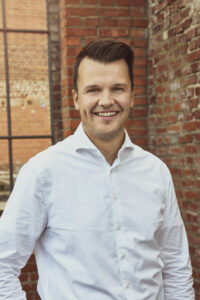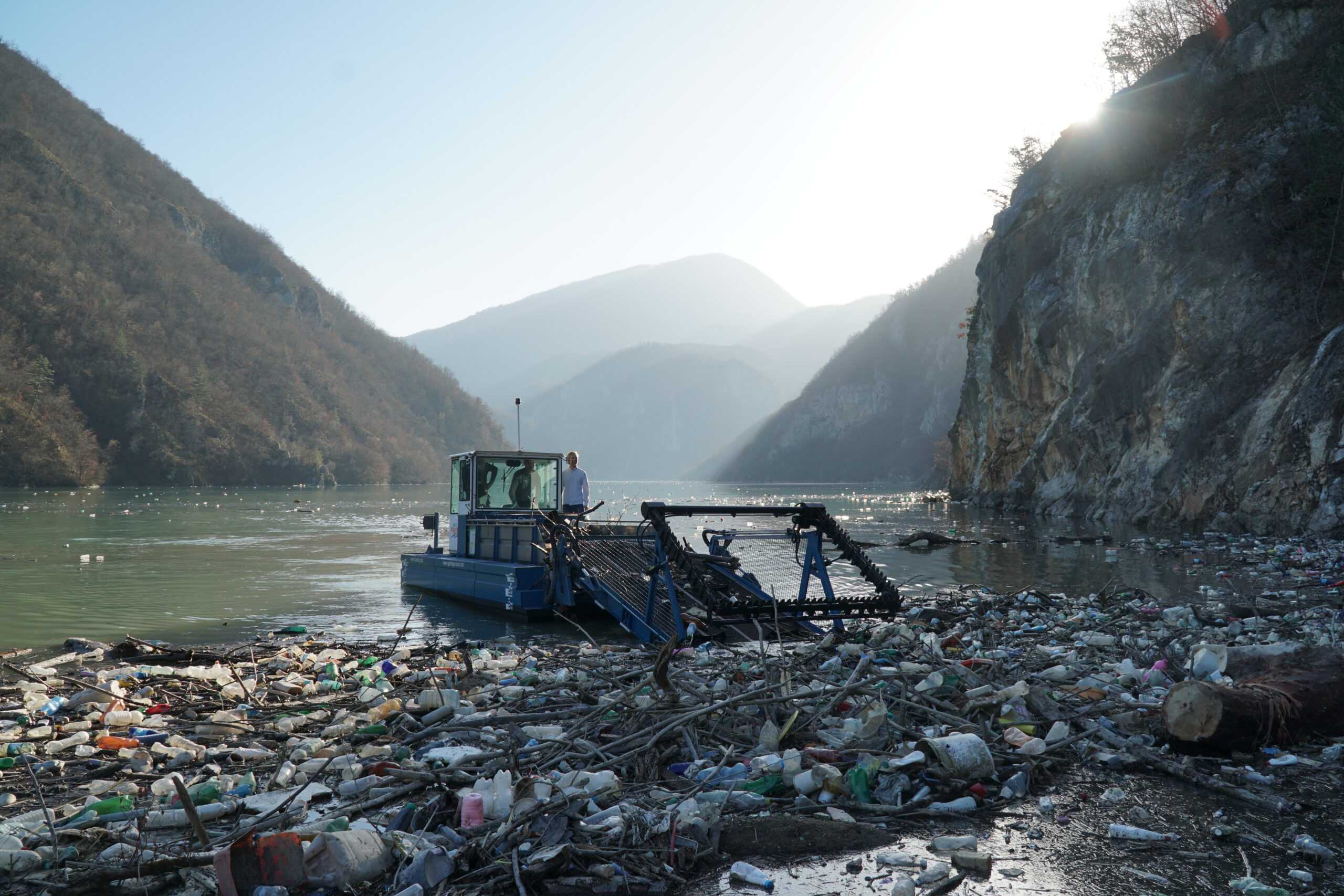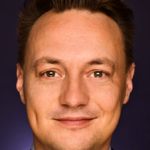Bildnachweis: 7. Cleanup Mission Romania, Barajul Voila, April 2022. Photo: © everwave GmbH.
What starts with a good sustainable idea is not automatically a sustainable business model. The road to a functioning social business is long and often rocky.
Nevertheless, the Aachen-based environmental, social impact, and sustainability start-up everwave has already successfully completed several rounds of financing, and the next one is imminent. After all, more than 45 jobs need to be financed, as do special boats and improvements to the AI-controlled collection of plastic waste. As a result, the original revenue plan has been revised.
The journey of Aachen-based start-up everwave began with an association founded in 2017. The motivation: to simultaneously do something for our planet and for our own health. The basic idea: around 90 per cent of plastic ends up in open waters via less than one per cent of all rivers worldwide – so-called plastic highways. From there it makes its way into microplastics, which eventually end up on our plates via the food chain. For the founders of the association it was obvious that plastic waste should be removed from rivers and lakes before it reaches the open sea and returned to the cycle of recyclable materials. This is good both for the environment and for us humans.

Experts from the fields of marine biology, geography, mechanical engineering, hydraulic engineering and graphics worked together in the association to further develop floating river platforms and waste collection boats. When required, business economist Helge Adomeit, founder and now CFO at everwave, supported the association pro bono in commercial and business management issues.
First financing through crowdfunding
He was also on board in an advisory capacity during the development of the first crowdfunding campaign. The aim was to raise EUR 200,000 to further develop and build the necessary ship models and to finance model tests with drones and artificial intelligence. Within a month, a total of EUR 231,205 was raised via the crowdfunding platform Startnext. “However, we soon realised that the task was bigger than a non-profit association run by volunteers could achieve. If we wanted to work together with local authorities and companies, then they were looking for a contact at eye level, and that means ‘business’,” explains Adomeit. “Doing good needs solid structures and good funding.” So, in 2018, the association became everwave GmbH.

EU politician was the first business angel
The first business angel was Gesine Meißner. The former EU politician provided the start-up financing for the pilot project with her initial investment in the low six-figure range. This made it possible to evaluate in practice how the project works technically and legally and to deploy the first waste collection boat, CollectiX, in the Balkans.
Strong participation was necessary
NRW.BANK was part of the first investment round at the beginning of 2022 with its NRW.SeedCap programme. This means that the promotional bank of North Rhine-Westphalia provides equity in the form of an investment in the same amount as a business angel and on the same terms. This business angel was the early-stage investor Capacura Impact Investing. In addition, NRW.BANK converted an existing convertible loan into equity. In total, everwave raised a seven-figure sum in this early-stage round. The next round of capital in the mid-six-figure range from three further business angels followed in mid-2023 with the aim of providing start-up financing for further projects. In the meantime, everwave’s waste collection boats are also travelling in Asia.

Innovation and social change go hand in hand
Further developing the technology is one side of everwave’s business model. But it is not only the 13 permanent employees in Germany that generate costs. The individual projects also need to be financed – and they currently employ around 32 people. The start-up is not only active in south-east Europe – for example in Bosnia, Albania and Serbia. An extensive project is being launched in Thailand’s capital Bangkok, and waste has already been collected in Cambodia for a year and a half. Between 20 and 25 employees work there every day in a newly built sorting plant. But collecting waste alone is not enough. The waste should be recycled back into the cycle as a raw material as locally as possible. This is anything but easy, because “in Phnom Penh, for example, there is no waste infrastructure whatsoever in parts of the city,” says Adomeit, explaining the high costs. “That’s why everwave has to build everything itself. In order to establish a recycling factory for the long term, we actually need partners from the ranks of the large waste disposal companies who know what works together in waste management and how.”
The everwave income pillar “Plastic Credit Model” is innovative. Every euro helps to fish one kilogramme of plastic and waste out of the world’s waters.
Monthly burn rate of around EUR 100,000
“Our projects are currently stabilising and our average burn rate is around EUR 100,000 per month,” says Adomeit. “Current expenditure cannot and should not be permanently financed by new equity. That’s why everwave got creative and is building on several regular pillars of in-come.” In concrete terms, this means marketing partnerships – companies such as Mastercard or Landmarken pay six-figure sums per year to finance specific projects. In return, they are allowed to advertise. Or build a rubbish collection boat. “Priceless by Mastercard” is the name of the CollectiX, for example, which is travelling in Eastern Europe. The logistics company Kühne & Nagel does not give money, but provides transport capacity. It ensures that the CollectiX boat is moved from one location to the next in Eastern Europe.
The fittings manufacturer Grohe is also an important strategic partner. The everwave income pillar “Plastic Credit Model” is innovative. It was inspired by the principle of CO2 compensation. It enables companies to reduce their waste footprint and work towards a cleaner environment. Every euro helps to fish one kilogramme of plastic and waste out of the world’s waters. 121 customers currently buy Plastic Credits and spend between EUR 1,500 and 2,000 per year on average. The motto: many small amounts add up. “Investing in us involves very little effort,” says Adomeit.
Original financial planning was not sustainable
The advantage for supporters is that they can show this financial commitment in their sustainability reporting. Other partners include companies such as MyMuesli and Schneider Electric, as well as the Audi Environmental Foundation and the Ferry Porsche Foundation. “We want to bring about tangible and sustainable change through our work and become one of the largest Plastic Credit providers in the world,” says Adomeit, describing the long-term goal.
“We are no longer ‘challenging’ the original financial plan” because due to the various crises such as coronavirus, Ukraine and the current war between Israel and Palestine, companies are holding back on spending outside of their core business. The original revenue plan was therefore not achievable.
Next financing round scheduled for early 2024
everwave is currently looking for further investors for the next financing round planned for the end of the first quarter of 2024. By then, a shop will be online that will make it quick and easy for all companies to purchase Plastic Credits. “Plastic Credits will be as easy to buy as a book on Amazon” for the smallest of sums. The shop is currently being customised to everwave’s needs and will soon be integrated into the homepage.
This article was published in the current Plattform Life Sciences issue „Circular Bioeconomy 4_23“, which you can view as an e-magazine via the following link:
https://www.goingpublic.de/wp-content/uploads/epaper/epaper-Life-Sciences-4-2023/#0
Autor/Autorin
Urs Moesenfechtel, M.A., ist seit 2021 Redaktionsleiter der GoingPublic Media AG - Plattform Life Sciences und für die Themenfelder Biotechnologie und Bioökonomie zuständig. Zuvor war er u.a. als Wissenschaftsredakteur für mehrere Forschungseinrichtungen tätig.




